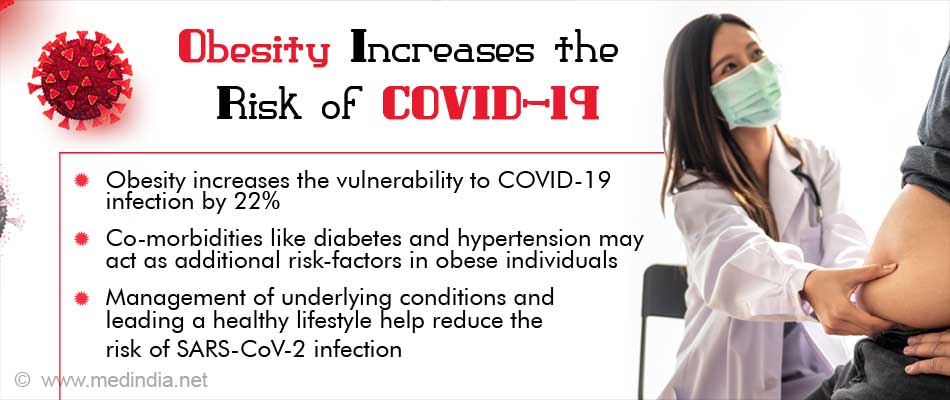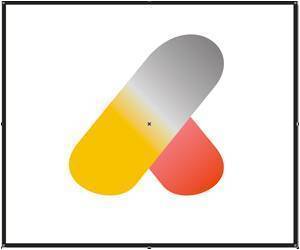could potentially create modifications in the working of the immune system which can be associated with the increased vulnerability for
The study results are based on the number of people who tested positive for SARS-CoV-2 infection at the Chaim Sheba Medical center, Israel. During the study period, the medical center announced a policy that implied all the hospitalized patients undergo a COVID-test despite the cause of illness and reason for hospitalization.
The researchers investigated and recorded details like age, sex, BMI, and the underlying conditions from all the individuals who tested positive for a period of 9 months.
Significant Relationship between BMI and Testing COVID Positive
A total of 1,178 people tested positive for COVID out of 26,030 patients who underwent testing.
The research found that the possibility of testing positive was 22% higher in people who are overweight (BMI 25.0-29.9 kg/m2) when compared to the patients having normal weight (BMI 18.5-24.9 kg/m2).
This link between BMI and COVID-19 remained significant even after taking age, sex, and co-morbidities into consideration.
The study reveals around a 2% increase in the risk of contracting the infection for every 1 kg/m2 rise in patients’ BMI.
The study aimed to look into only the risk of testing COVID positive in obese patients and the mortality, and other serious outcomes were not taken into consideration.
Co-morbidities Add up to a Huge COVID Risk
The study also disclosed the danger of the presence of underlying health conditions in obese individuals and the vulnerability of getting infected. The significant and widely present co-morbidities like diabetes, hypertension, stroke, ischemic heart disease, and chronic kidney disease were taken into consideration for the study.
People with diabetes were found to be associated with 30% more risk, and hypertension was found to be causing 6 times greater risk in patients than their normal counterparts. Other co-morbidities of interest were found to be associated with 39%, 55%, and 45% lower risk in patients, respectively. No conclusive explanation was given by the authors for the observation of low risk in these particular co-morbidities.
The researchers concluded: “As BMI rises above normal, the likelihood of a positive SARS-CoV-2 test result increases, even when adjusted for a number of patient variables. Furthermore, some of the comorbidities associated with obesity appear to either be associated with an increased risk of infection or to be protective.”
Simple Tips to Manage Weight during Lockdowns
Source: Medindia



